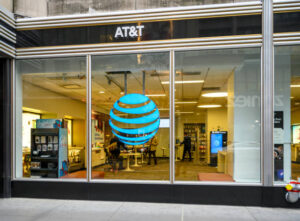Is Background Screening Mandatory for Blue-Collar Workers?

Nowadays, blue-collar employees are subjected to many levels of background checks by firms (particularly start-ups). Previously, screening was only done for staff with a certain pay grade, but it is now being done for all employees. In addition, all aspects of a person’s past activities are thoroughly scrutinized.
According to data collected by background screening firm Auth Bridge Research Services for Address verification Collared Employees, choosing a fraud or unethical individual with a possible criminal Background verification or a fake identity poses a reputational risk in the on-demand economy.
The term “on-demand economy” refers to new-age businesses that provide services such as ride-sharing, food and grocery delivery, and home services, among other things.
Following the BPO boom, on-demand services have ushered in a new era of work chances for Indian youth. Companies, on the other hand, like to err on the side of caution when it comes to staff background checks.
Companies are now willing to pay more money to undertake multiple employment background checks on even blue-collar workers, and they are also making strident calls to blacklist individuals who engage in deplorable behavior. This is because these employees are the firms’ true brand ambassadors, and any misbehavior has far-reaching ramifications because the majority of these start-ups are sponsored by multinational corporations.
Startups have also begun to share information about applicants with a criminal history (open criminal case) with one another in order to prevent them from being employed elsewhere.
Background verification is gaining traction throughout the employment spectrum, and when done correctly, it allows firms to filter out talent based on key criteria, allowing them to make informed decisions when it comes to employing their workforce.
Previously, only white-collar workers were subjected to employment background checks by private companies. Firms are stepping up to manage their responsibilities properly now that they have a huge workforce spread across smaller organizations that fall under the blue-collar category.
What if you recently recruited a delivery team that has a history of breaking and entering? Or has someone at your factory been charged with sexual assault in the past? Perhaps one of your warehouse’s security guards has a criminal past. Companies are being forced to invest extensively on employment background checks due to the nightmare of recruiting scammers or immoral applicants.
The numbers speak for themselves as to why businesses want to look into all elements of a person’s past activity. Fake IDs are used by more than 10% of competent professionals. A civil or criminal record is held by as many as 3% of blue-collar workers. Many people have been fired as a result of their involvement in activities that are not in the best interests of the company, or simply because they are unable or unwilling to follow instructions and rules.
While corporations value background checks, HR teams may find this to be a herculean task. Using an outside firm to do background checks might be costly. Collecting data for decision-making and even setting up corporate policy takes time due to varied processes at different locations. Attempts to contact former employers in order to inquire about a person’s work ethics and conduct may be futile.
So, how should you handle background checks for your blue-collar employees? How do you ensure that only trustworthy candidates are hired, and that you do so in a timely, accurate, and cost-effective manner?
Few Effective Solutions:
1) Invest in a powerful system to automate your processes
When it comes to blue-collar verification, go with a system that:
- Is available 24 hours a day, 7 days a week.
- Is highly scalable
- Allows setting up notifications.
- Allows for precise reporting
- Creates executive summaries
Through simple APIs, the system should also allow for easy connection with third-party labor businesses. The system should also allow the organization to define each employee’s location and position. Management should be able to design the solution so that the appropriate information is supplied to the appropriate stakeholders automatically.
Companies will be able to automate processes for education and employment checks, address verification, and health checks such as drug and covid tests at preferred diagnostic centers once such a system is in place.
Types of background verifications that may be included:
- Court record verification
- Postal record verification
- Medical verification
- CIBIL verification
- CRC verifications and police verification through law firms
- Education verification
- Physical address verification
- Reference verification
2) End-to-End Systems for Employee Tracking and Monitoring
Human errors are common when recruiting and managing a large, dispersed staff. Migrant workers make up a large portion of the blue-collar sector, making them difficult to track. As a result, poor recruiting decisions are made.
These employees’ profiles can be quickly screened for background checks if they can easily onboard themselves onto a system and be checked against a range of data points. Each profile can generate reliable reports for supervisors and hiring managers. Risky profiles can be blocked and removed before they become a problem. While a good onboarding system aids firms in managing a large staff, it also serves as a valuable tool for employee retention.
Managers may use intuitive dashboards to get real-time information on employee demographics and the status of the onboarding funnel. Furthermore, comprehensive reports for all workers across many sites in India can be generated. Email notifications of the verification status are possible. Data is kept safe thanks to good access control, which ensures that only the right people have access to it. This reduces the chances of manipulation and blunders.
This not only reduces human monitoring, but it also fosters accurate record-keeping. A tech-driven system also cuts the costs associated with a paper-based system dramatically. Furthermore, such a system is extremely scalable.
Problems with Address Verification for Blue-Collar employees
E-commerce involves a lot of buying and selling of products and services on a daily basis and address verification. The majority of blue-collar workers employed in this sector are on the move, looking for quick cash to sustain their families.
Some blue-collar job vocations (for example, delivery boys, warehouse workers, drivers, retail store employees, and security guards) may not be able to show appropriate education or employment records that can be validated. Hence, employers sometimes choose to verify the address in order to add a layer of security and compliance. Additionally, the address proof supplied as part of a government-issued ID may be incomplete or wrong as they are more than likely to live at transitory addresses that aren’t considered the most reliable source of address verification information.
In such cases, physical site visits and digital address verification can be used to confirm a residential address, whether it is current, past, or permanent.
Why Employee Verification of Blue-Collar workers is Crucial for Smaller Companies
Grocery delivery, home services, and ride-sharing services are among the small and new-age businesses that are producing many job opportunities for blue-collar workers in the on-demand economy. These employees’ bad behavior can harm their reputation and company opportunities. Such businesses lack the means to undertake thorough background checks, especially during peak seasons.
In such situations, an end-to-end personnel verification and management solution for blue-collar workers can make all the difference. It has the potential to make employment background checks lightning fast, painless, and cost-effective. A system like this might also make it easier for workers from the country’s most remote areas to find work.
Conclusion:
Blue-collar jobs are typically sought after by people with less education or a lower socioeconomic background. Unfortunately, these people’s circumstances encourage them to engage in criminal activity. Many blue-collar workers have criminal records, ranging from petty stealing out of desperation to joining a gang due to peer pressure. It is not unusual for people to try to conceal negative records from their pasts in today’s world, where competition is fierce and jobs might be limited. People may conceal criminal histories in order to obtain employment or to defraud a firm and its consumers. To avoid putting your company, employees, and customers at risk, every new recruit should undergo thorough background screening.







